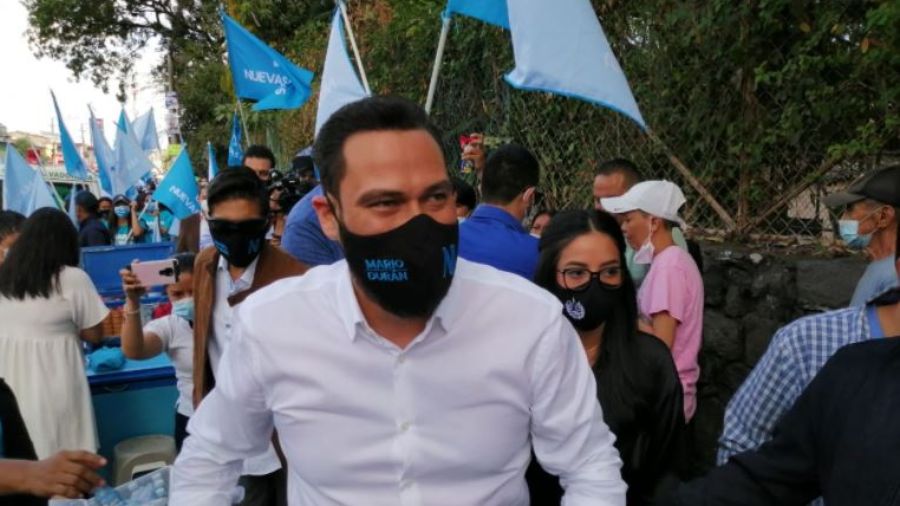
Durán declared himself the winner after defeating his main competitor Ernesto Muyshondt from the ARENA party, who aspires to a second term in charge of the commune.
Mario Durán, candidate for New Ideas, becomes the new mayor of San Salvador after defeating his competitor Ernesto Muyshondt, from the ARENA party, who aspires to a second term as mayor, according to preliminary data from the counting of the minutes of the Supreme Electoral Court.
Durán was proclaimed the winner on Monday morning through his Twitter account, where he exchanged his profile information and described himself as “elected mayor of the capital El Salvador”.

Later, his party also supported Durán’s announcement in a social media post.
“@Nuevasideas are back in San Salvador! @Marioduran, mayor!”
Also: check here in real time the preliminary results of the 2021 elections
On February 28, Durán voted at the Manuel José Arce National Institute in the Modelo neighborhood of San Salvador, where he was accompanied by a group of supporters.
By 10:26 on Monday morning, preliminary data from the TSE highlighted him as the winner of the capital’s commune, with 88.70 percent of the minutes examined.
Durán’s elections are based on allegations of corruption while accompanying Bukele in his term as mayor of the capital’s commune in 2015-2018. The political opposition also indicated that the government used public resources to campaign for its allies New Ideas and the Great Alliance for National Unity (GANA).
A total of 17,074 candidates were elected on February 28 on a day that highlighted the crowds and long queues at polling stations.
Also: MINUTE BY MINUTE: JRVs advance in the number of votes in the elections of mayors and deputies in El Salvador
According to data from the Supreme Electoral Tribunal (TSE), more than 5.3 million voters were called to vote at 8,451 polling stations in the 1,595 polling stations across the country.
Despite the influx of Salvadorans to the polls, some polling stations recorded less than half of the voter turnout, as was the case with JRV in Santa Ana, Apopa and Moncagua.